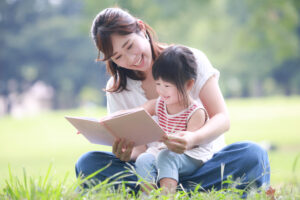Over-the-counter (OTC) medicines are drugs you can buy without a doctor’s prescription. This doesn’t mean that OTC medicines are harmless. Like prescription medicines, OTCs can be very dangerous for children if not taken the right way.
Be sure to read the package instructions on these medicines carefully. Talk to your doctor or pharmacist before giving OTC medicines to young children.
Here are some safety tips for parents and other caregivers:
- Don’t give children medicines intended only for adults.
- Always follow the directions on the “Drug Facts” label. This label tells you how to give the medicine safely and in the right amount. It lists warnings, tells you how often to give the medicine, and helps you know if the medicine is safe for your child.
- Check the “active ingredients” listed on the label. This is what makes the medicine work. If you use two medicines with the same or similar active ingredients, your child could get too much.
- Talk to your doctor or pharmacist before giving your child more than one OTC medicine at the same time.
- Talk to your doctor before you give fever medicine to a baby who is 3 months of age or younger. This is to make sure a young baby’s fever is not a sign of a serious illness. The exception is if your baby has just had an immunization.
- Don’t give aspirin to anyone younger than 20 unless your doctor tells you to. Aspirin increases the risk of Reye syndrome, a serious illness.
- Ask your doctor or pharmacist about any vitamins, supplements, foods, or drinks that shouldn’t be mixed with your child’s medicine.
- Don’t take medicine in front of children, since kids will often copy what you do. And never call medicine “candy” to get your kids to take it.
- Be extra careful with liquid medicines. Infants usually need a different dose than children do. And some liquid forms are stronger (more concentrated) than others. Always read the label so that you give the right dose.
Giving the right amount
- Always follow directions about your child’s age and weight when you are giving a dose.
- When giving medicine, use the tool that comes with the medicine, such as a dropper or a dosing cup. Don’t use spoons instead of the tool. Spoons can be different sizes. If the medicine doesn’t come with a tool to give doses, ask your pharmacist for one.
- Know the difference between the amounts in a tablespoon (Tbsp) and a teaspoon (tsp). A tablespoon is three times as much as a teaspoon.
- Never increase a dose because your child seems more sick than before.
- Talk to your child’s doctor before switching back and forth between doses of acetaminophen and ibuprofen. When you switch between two medicines, there is a chance your child will get too much medicine.
Storing medicines safely
- Store medicines where children can’t see or reach them. Many OTC medicines are colorful, taste good, and can be chewed. Kids may think that these medicines are candy.
- Use medicines with a childproof cap. Lock the cap after each use by closing it tightly.
- Don’t buy or use medicine from a package that has cuts, tears, a broken seal, or other problems. Check the medicine at home to make sure the color and smell are normal.
- Check your medicine supply at least once a year. Ask your pharmacist how to get rid of medicines that are past their expiration date.
- Always store medicines in a cool, dry place or as it says on the label.
- Keep all medicines in their original containers. This way you avoid giving the wrong medicine by mistake.
Using cough and cold medicines
Studies show that over-the-counter cough and cold medicines don’t work very well. Some of these medicines can cause problems if used too much. These medicines don’t cure the cold or cough. And they don’t help your child get better faster.
Use these medicines exactly as your doctor says and keep them out of children’s reach.
- Check the label before you give cold medicines to a child. They may not be safe to give to young children.
- Don’t give antihistamines, such as diphenhydramine (Benadryl, for example), to your child unless you’ve checked with your doctor first. Antihistamines are sometimes used in cold medicines, so check for them on the label.
- Try other home treatments besides medicines. A humidifier may soothe swollen air passages or help a cough. Honey or lemon juice in hot water or tea may help a dry cough. Do not give honey to a child younger than 1 year old.
- Don’t give your child too much acetaminophen or ibuprofen. If you are giving your child fever or pain medicine (such as acetaminophen or ibuprofen), don’t give your child a cold or flu medicine that contains the same ingredient. Your child could get too much medicine.
[KP Tag]


